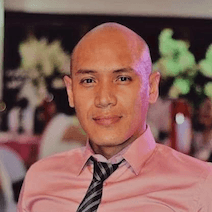SUMMARY
This is AI generated summarization, which may have errors. For context, always refer to the full article.
![[OPINION] The George Floyds in our midst](https://www.rappler.com/tachyon/r3-assets/612F469A6EA84F6BAE882D2B94A4B421/img/9BAB49F491C14CB797940B33F122C742/ispeak-640.jpg)

The world seems to be marching shoulder to shoulder in solidarity against the recent spate of racial prejudice in the US. The fuse was lit when an African American, George Floyd, died in the hands of arresting officers in Minnesota.
Now, this is not something new. There are numerous studies that map out decades of black American deaths during confrontations with or under the custody of police officers in the US. But what makes the George Floyd case so different in the history of police brutality along racial lines is that the world saw his death as it played out on social media.
Suddenly, sections of cities across the US were up in smoke, looting and pillaging sprouting forth from what started out as peaceful protests.
And suddenly, the issue of racial prejudice became a “thing” in the Philippines. Maybe it is, but it is not as evident and manifested here as it is in the US. The last time a major uprising broke out here because of racial intolerance was when we were under the colonial yoke of Spain. Swelling the ranks of the revolutionaries were Indios – native-born Filipinos who couldn’t avail of as many rights and privileges as the rest of the racial hierarchy, which also featured the Mestizos (Indios of mixed lineage), Insulares (Spaniards born in the islands), and the Peninsulares (the lofty ones; Spaniards born in the Iberian Penninsula). (READ: [OPINION] The anger against colonialism is, and continues to be, justified)
In recent memory, the impetus for major revolts and insurrections in the Philippines were more ideological than they were racial.
But yes, we have George Floyds among us.
He is the pitiable farmer who tills soil under torturous conditions so he can provide food for the rest of the country. He is the lowly employee who has to make good with low wages and extended working hours. He is the health worker whose meager salary is not commensurate to the hard labor and hazards he faces every day in the workplace. He is the environmentalist who puts his life on the line as he battles big, greedy corporations to defend our fragile earth. He is the poor voter who is blinded by the empty promises of corrupt politicians, who use him for their own personal gain and furtherance.
Same oppressed people. Different oppressors. Have we ever bothered to notice them? Have we ever exhibited consternation when we see them mistreated and abused? Have we ever thought about protesting on their behalf?
Maybe the events in the US are a way to remind us that we should keep our eyes peeled for any form of discrimination and exploitation anywhere around us. We don’t have to wait for something to unfold miles away in order to bring out the activist in us.
If we remain blind to the bigotry in our society and only start to take notice when an issue is popular, then our voice lacks authenticity.
Speaking up for the voiceless and defenseless is a way of life…a vocation, if you will. It is not a fashion trend. Protest because you need to. Not because you want to. Be a genuine advocate, not a seasonal activist. If you truly speak for the oppressed, then look no further, for they are all around us. There is always a George Floyd in our midst. – Rappler.com
Alex Manlapao is a professor of philosophy, ethics, humanities, and the contemporary world at Colegio San Agustin-Bacolod.
Add a comment
How does this make you feel?
There are no comments yet. Add your comment to start the conversation.